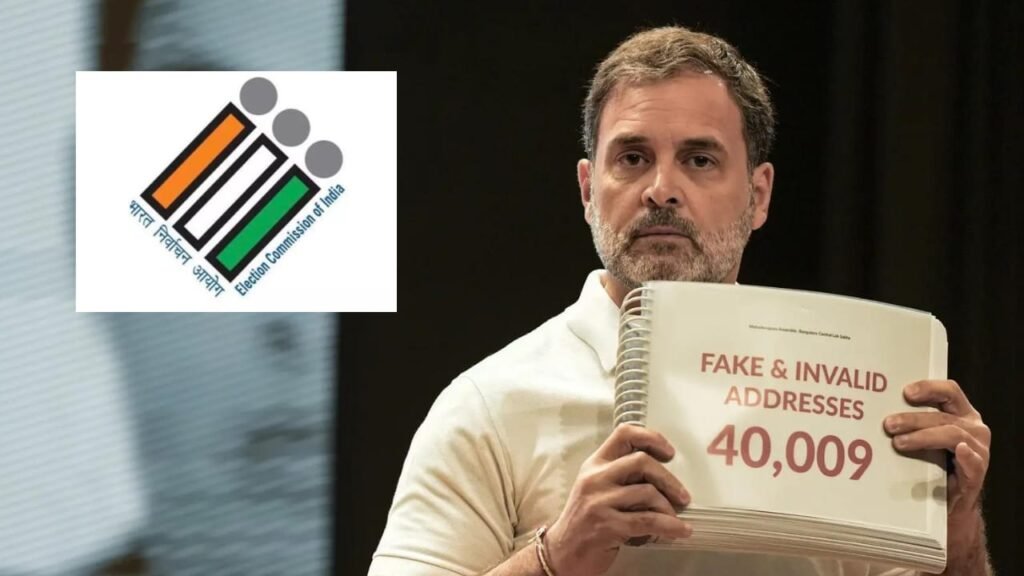A political storm is brewing in India following allegations of “vote theft” which has caused parliamentary outrage and fresh debate surrounding the sanctity of the 2024 general elections.
Opposition leaders, spearheaded by Congress’s Rahul Gandhi, staged a protest demanding accountability from the Election Commission of India (ECI), accusing it of negligence that cost the opposition up to 48 seats. Parliament soon adjourned as lawmakers called for a detailed debate. Gandhi, along with others, was briefly detained while trying to approach the ECI headquarters—highlighting growing tensions around the administration of the electoral process.

What Are the Allegations?
Rahul Gandhi provided figures indicating large-scale voter rigging in Bengaluru’s Mahadevapura constituency—alleging that the voter roll contained suspicious entries, such as repeated voters and bulk voting at one address.
He also provided examples such as that of Shakun Rani, who was accused of having voted twice, and asked why CCTV footage went missing during critical periods. Gandhi claims such irregularities influenced poll results substantially, basing his argument on India’s controversial political environment.
ECI Pushback & Political Fallout
The Election Commission has firmly denied the allegations, terming them as “absurd” and insisting Gandhi either produce evidence to back them up or issue an apology. The Commission drew attention to the failure of the Congress party to raise formal objections during the formal roll verification exercise. It explained that CCTV recordings are kept only for 45 days after polling.
BJP leaders criticized the allegations as politically motivated, with the opposition accused of subverting democracy.

What’s Next?
Opposition parties are calling for unrestricted access to scrutinize the electoral rolls and flag divergences. In the background, the Supreme Court is examining petitions regarding roll updates in Bihar—where 6.5 million names were stripped off. Opponents threaten voter disenfranchisement, especially among minority populations and migrants.
The court has asserted that although there may be a deficit of trust, any proof of mass exclusion will lead to prompt judicial intervention.
The Stakes
With almost a billion registered voters, India’s election integrity is at the very root of its democracy. These claims, if true, would jolt the public’s trust in the process. With increasing political and judicial scrutiny, the country faces pressing questions regarding transparency, accountability, and faith in its poll-gathering institutions.

